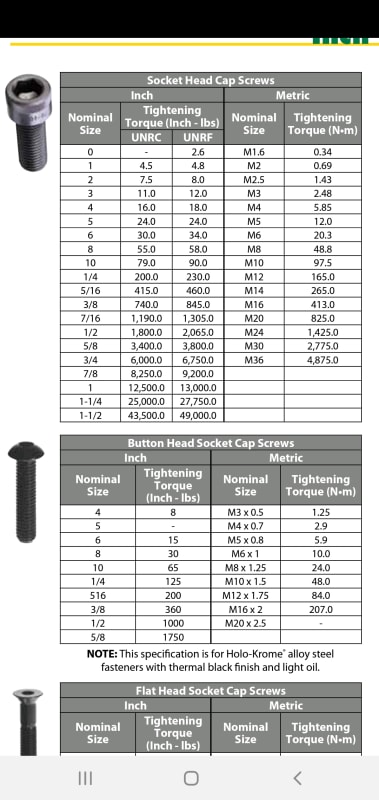Hello everyone,
Today I'm designing an assembly that must be 100% 316 S/S and I have good reason to use button head socket hex head screws.
It's been my experience on small assemblies that these hex driven heads can strip out. So I assume my usual torque specifications for 316 S/S are too much.
Is there a reference or simple calculation that will offer an appropriate torque for hex drives in softer materials?
* Yes, galling is a risk and is not part of my question.
Thanks,
David
Today I'm designing an assembly that must be 100% 316 S/S and I have good reason to use button head socket hex head screws.
It's been my experience on small assemblies that these hex driven heads can strip out. So I assume my usual torque specifications for 316 S/S are too much.
Is there a reference or simple calculation that will offer an appropriate torque for hex drives in softer materials?
* Yes, galling is a risk and is not part of my question.
Thanks,
David

